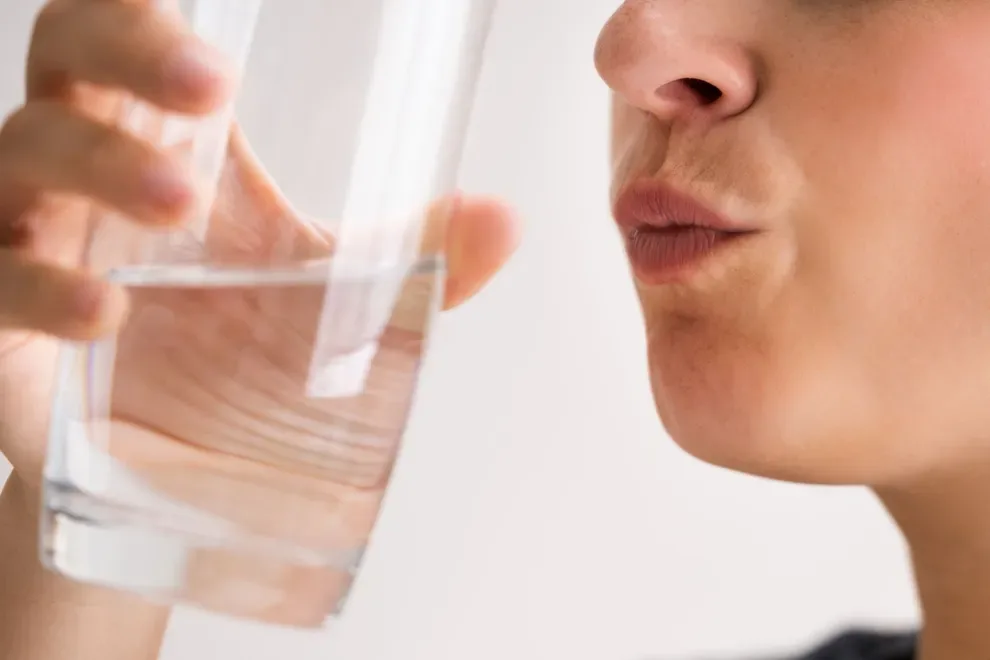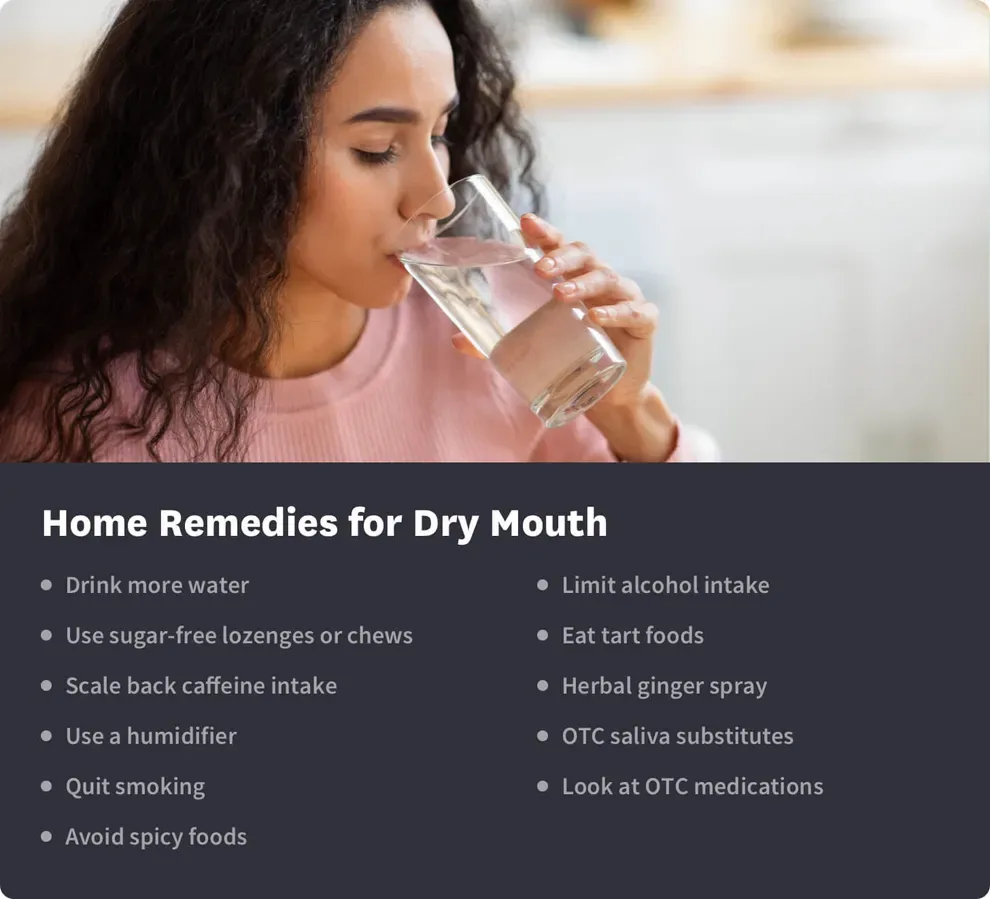Home Remedies for Dry Mouth: Do They Work?

Table of Contents
- Drink More Water
- Sugar-Free Lozenges or Chews
- Lifestyle Changes
- Over-the-Counter Products
- Examine the Source
- References
Most of the time, dry mouth can be at least temporarily relieved at home through a variety of different methods.
The Most Effective Home Remedies for Dry Mouth
The most effective at-home remedies for dry mouth include:
Drinking more water
Sucking on sugar-free lozenges or chewing gum
Making some lifestyle changes
Using over-the-counter (OTC) products
Examining the source
If you know what is causing your dry mouth, you can more effectively treat it at home.

Drink More Water
Dry mouth is called xerostomia. It happens when you do not have enough saliva to coat your mouth. It can make it hard to talk, eat, drink, swallow, and taste your food. Over time, it can lead to mouth infections, cavities, and gum disease.
This sounds like a no-brainer, but dry mouth can be caused by dehydration. Taking care to get enough water into your system every day can help to alleviate dry mouth. As a general rule, you should be drinking around four to six cups of water per day. You can also add liquid to the foods you are eating to increase your overall water intake.
Take small sips of water throughout the day on a regular basis. You can also suck on ice chips to keep your mouth moist.
Use Sugar-Free Lozenges or Chews
Sucking on sugar-free candy or lozenges or chewing sugar-free gum can help to keep saliva circulating and keep your mouth from getting so dry. When sucking on a candy or chewing gum, you are also more likely to keep your mouth closed, which can keep saliva from dissipating as fast.
Be sure to choose products that do not contain sugar, as they can lead to tooth decay and cavities. You can find sugarless gum that has the ADA seal of approval to help with dry mouth and prevent damage to the teeth.
Consider Lifestyle Changes
There are several things in your environment or daily actions you can change that can increase your saliva production and decrease the symptoms of dry mouth at home.
Breath with your mouth closed. Breathing with an open mouth dries out your mouth faster.
Scale back your caffeine intake. Caffeine can increase the level of dryness in your mouth. Switching to decaf can help with dry mouth.
Use a humidifier. Particularly at night, a humidifier can add moisture to the room and help to decrease your dry mouth.
Quit smoking or using tobacco products. Cigarettes dry out your mouth and can also hinder natural saliva production.
Avoid spicy foods. These can irritate your mouth and make it more dry.
Consume tart foods and liquids. Sugar-free sour candies, lemonade, and dill pickles can help to stimulate saliva production.
Limit alcohol intake. Alcoholic beverages can further dry out your mouth.
Try ginger. Studies show that an herbal ginger spray can help to stimulate saliva production and relieve dry mouth.
All of these methods can potentially offer temporary relief for dry mouth symptoms.
Try Over-the-Counter Products
Another method for helping chronic dry mouth is to use OTC products that are saliva substitutes. Products containing xylitol can help to keep your mouth moisturized and offer relief from dry mouth.
Xylitol is a naturally occurring sugar that can lower the risk for tooth decay. It can also help to stimulate saliva production and minimize dry mouth.
Saliva replacement products come in specialty toothpastes, mouthwashes, rinses, gels, and sprays. These products can be used throughout the day to minimize dry mouth on a regular basis. Some work in a time-release fashion, while others are reapplied when needed.
Using an alcohol-free mouthwash that is designed to help dry mouth. Many of these products are available over the counter, but some are only available via prescription. Discuss these options with your dentist and/or doctor.
Examine the Source of Your Dry Mouth
When managing dry mouth, the remedy will often depend on what is causing the issue. Addressing the cause can help to quickly clear dry mouth.
For example, many medications can cause dry mouth, including diuretics, antihistamines, and decongestants. If you are taking prescription or OTC medications and notice dry mouth symptoms, consider switching to something else or talking to your doctor about alternatives.
Aging, hormone changes (including those related to pregnancy and menopause), and cancer treatments can also cause dry mouth. The FDA recommends talking to your doctor and potentially also your dentist when you are experiencing persistent dry mouth, as it can be a sign of an underlying health condition or disease. Diabetes, HIV/AIDS, and Sjogren’s syndrome, which causes the immune system to attack moisture-producing glands, can all cause dry mouth.
Dry mouth may be a symptom of a larger issue, so talk to medical professionals about what might be causing your dry mouth.
